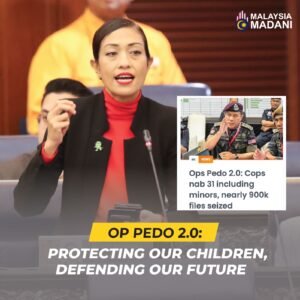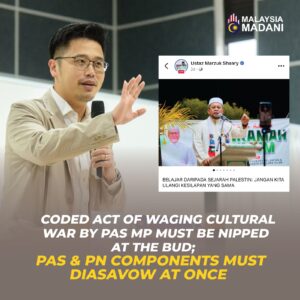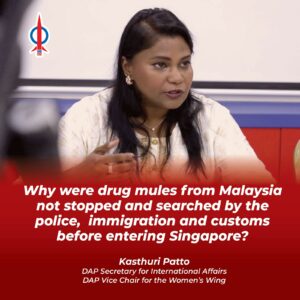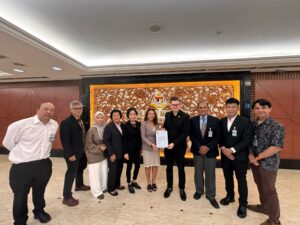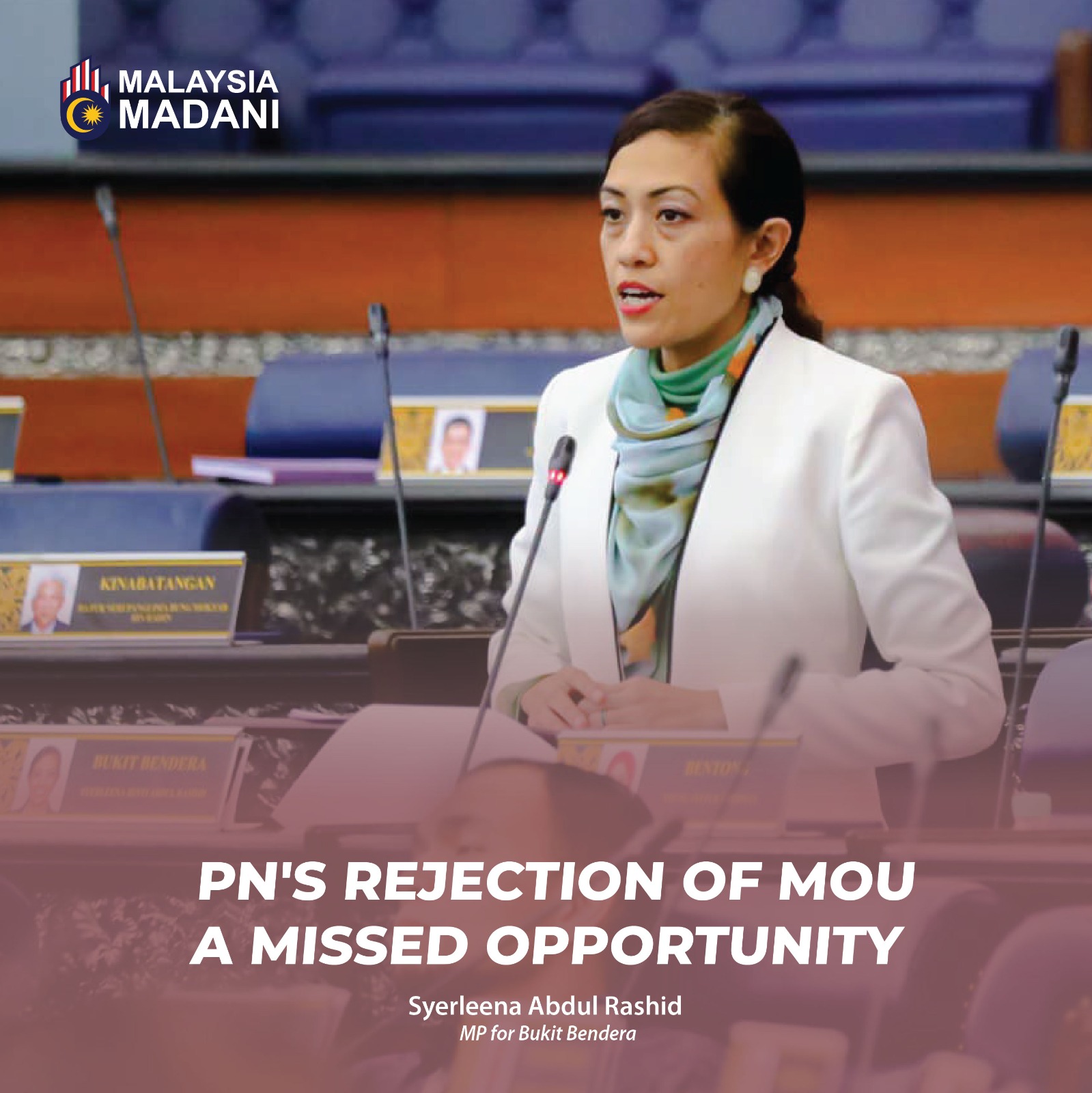
Perikatan Nasional’s rejection of the Memorandum of Understanding (MOU) proposal reveals a lot about the current state of Malaysian politics.
The Madani government, led by Prime Minister Anwar Ibrahim, extended the MOU as a peace offering, as an effort to create political stability and foster cooperation across party lines, aiming to unite the nation amid economic and social challenges.
However, Perikatan Nasional’s rejection indicates the persistence of political polarization and the complexities of reaching bipartisan agreements in Malaysia.
So, what’s the real issue here? For one, PN’s stance suggests a deep-rooted skepticism towards the Madani government’s approach, whether it’s ideological differences, policy priorities, or simply political strategy for the upcoming elections.
By turning down the MOU, PN might be betting on keeping their base energized, showing that they won’t bend to a compromise that doesn’t align with their agenda. PN’s swift refusal sends a clear message: the divide runs deeper than some may have hoped.
It’s a missed opportunity. At a time when Malaysians want solutions and progress, political wrangling seems to be taking center stage.
Malaysia needs leaders willing to put aside political differences for the greater good. The road to unity won’t be easy, but it’s crucial for building a future that reflects the spirit of Malaysia Madani.
SYERLEENA ABDUL RASHID
MEMBER OF PARLIAMENT FOR BUKIT BENDERA
